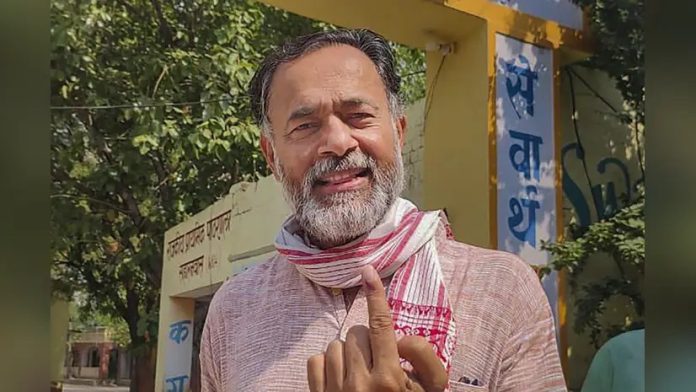– Yogendra Yadav
[Yogendra Yadav, an eminent psephologist, human rights activist and politician whose primary interests are in the political and social sciences. He was a Senior Fellow at the Centre for the Study of Developing Societies, Delhi from 2004 to 2016. In this article he has pointed out nine misconceptions and one bitter truth regarding the ongoing voter list enumeration controversy in Bihar. We have translated his article from Hindi into English in the larger public interest.]
Misunderstanding 1: The Election Commission is reviewing and correcting Bihar’s current voter list.
Fact: No, the current voter list in Bihar is not being revised or corrected. A completely new voter list is being prepared.
Misunderstanding 2: Such exercises have happened before; nothing new here.
Fact: Absolutely untrue. What is happening now has never happened before. A fresh enumeration and door-to-door verification are being carried out before the creation of the new voter list. Previously, voter ID cards were made only after the list had been finalised. This is the first time such ‘verification’ is being done prior to elections and before voters’ names are recorded.
Misunderstanding 3: There was massive fraud in Bihar’s previous voter lists; this step is necessary.
Fact: False again. Before this, the names in the Bihar voter list were added based on standard procedures. Though lakhs of new names were added, no major complaints were made. If there had been issues, corrections could have been made within the current framework. Scrapping the list and restarting afresh is an unnecessary overstep.
Misunderstanding 4: Those whose names appeared in the 2003 list don’t need to do anything.
Fact: Incorrect. Every citizen will need to fill out the new forms. Only those whose names, parents’ names, and addresses appear exactly the same in both the 2003 and 2025 lists may be exempt. But even then, one must prove continuity through documents – the 2003 list cannot automatically guarantee citizenship or voting rights.
Misunderstanding 5: Proof of citizenship will be asked only from those who are suspected.
Fact: Those not listed in the 2003 voter list will not be granted automatic citizenship.
Anyone born before July 1, 1987 will need to prove only their birth.
Anyone born between July 1, 1987 and December 2, 2004 must prove their own birth and show that one parent’s name appeared in the 2003 voter list.
Those born after December 2, 2004 must provide proof of birth for themselves and both parents.
If a parent’s name appears in the 2003 list, a photocopy may suffice, but personal proof of birth is still required.
Misunderstanding 6: The Election Commission has specified valid documents – surely everyone has something.
Fact: Not true at all. Most common household documents – like Aadhaar, Ration Card, Voter Card, and MGNREGA job card – are not accepted by the Election Commission.
Of the 11 officially accepted documents:
- Only 2.4% of people in Bihar have passports.
- Birth certificates are held by just 2.8%.
- Government employee ID: 5%.
- Caste certificate: 16%.
- Matriculation certificate (10th grade): less than 50%.
Misunderstanding 7: The law treats everyone equally. If someone lacks documents, they’ll all be equally affected.
Fact: Absolutely not. In reality, those who are uneducated, poor, women, migrant labourers, Dalits, and rural marginalised groups will be hit the hardest.
This system places an unfair burden of “citizenship proof” on exactly those who lack the resources to fulfil it.
Third Image – Timelines and Political Intent
Misunderstanding 8: The Election Commission has given three months – there’s enough time.
Fact: Wrong. The actual data collection ends on July 25.
The remaining two months are only for resolving objections.
According to internal confidential documents, the entire household verification and new list preparation must be completed within one month and submitted. Only 20,000 staff have received training for this task – a small fraction. The regular hiring process hasn’t been followed.
Temporary staff and school teachers are being used, most of whom are inexperienced.
The verification will be conducted door-to-door, and voters must visit schools and offices to upload documents.
If a person’s name isn’t verified by July 25, they may not be included in the voter list.
Misunderstanding 9: Only foreign Hindus will be allowed to vote’
Fact: No – anyone with legal residence in Bihar, regardless of religion or nationality – Nepali, Bangladeshi, Hindu or not – can register as a voter.
The real motive appears to be the exclusion of some thousands of marginalized citizens under the guise of including foreign Hindus.
Final and Bitter Truth: Bihar’s total population is around 13 crore (130 million). Of this, 8 crores are eligible voters.
Only 3 crore names exist in the 2003 voter list.
This means 5 crore people will now be required to provide citizenship documents.
Most of them – labourers, women, rural and uneducated groups – don’t possess these documents.
This makes the current drive an exercise in voter disenfranchisement, not just list-making.
Instead of ensuring inclusive voting rights, it is preparing for mass exclusion.




